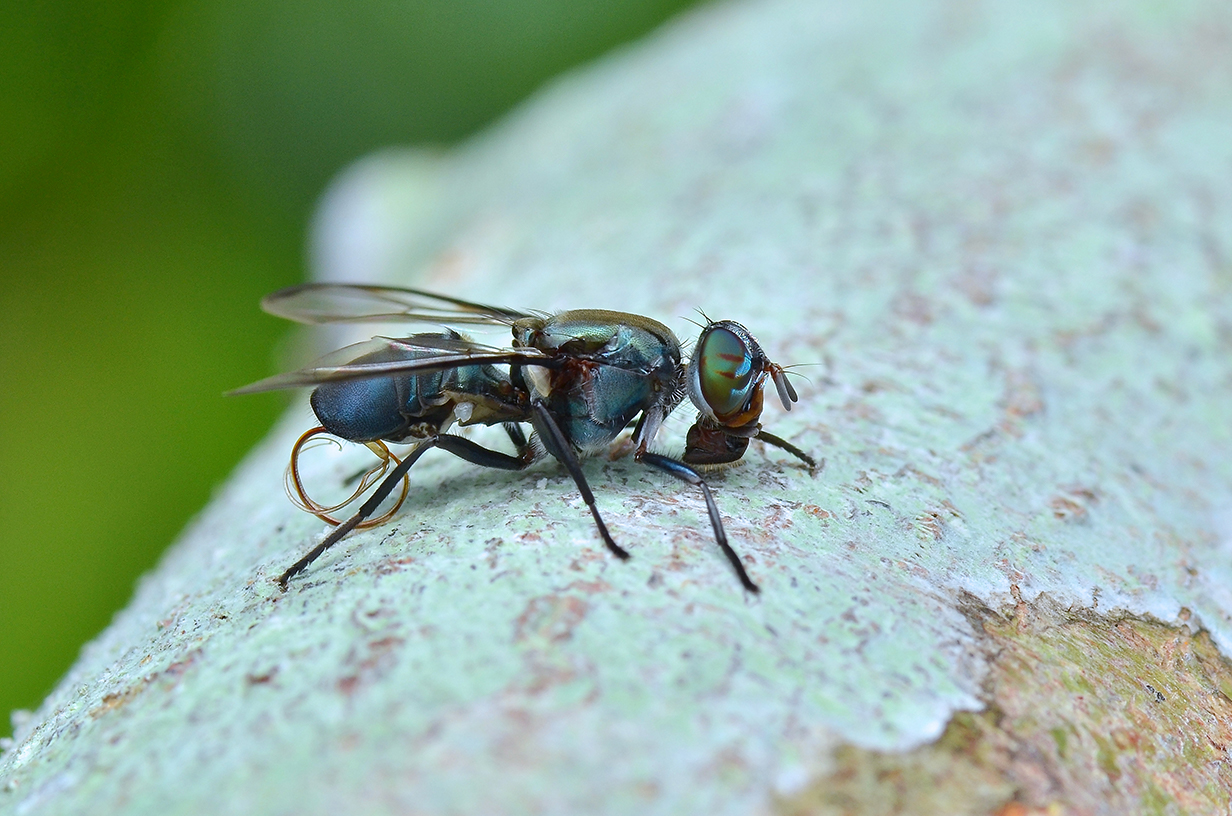The region’s population continues to grow, and so do the piles of organic waste from our farms, markets, restaurants, hotels, and food manufacturers. This is creating health, environment, and climate risks. The Caribbean Food and Agriculture Organisation of the UN (FAO) estimates that 1/3 of all food produced goes to waste with Latin America and the Caribbean generating the highest food waste carbon footprint in the developing world, a staggering 78 million tons annually.
At the same time, all commercial animal feed (mainly corn and soya) is imported into the region. Indeed, poultry feed in the Caribbean can amount to as much as 80% for broiler chicken production, leading to higher retail costs to consumers and many poultry producers going out of business.
The FAO working with its partner Fera Science Limited (Fera) has completed a regional survey of organic waste across Barbados, Jamaica, Grenada, and Trinidad and Tobago to assess the potential of insect farming as a solution to the twin problem of increasing volumes of organic wastes, and the lack of access to affordable animal feed.
Traditional animal feed material is based on soybean, which carries a heavy environmental impact - 75% of soy used in animal feed, fuels climate change through loss of topsoil and a direct cause of deforestation associated with sensitive ecosystems such as the Amazon biome. Access to a sustainable and affordable protein supply for animal feed is therefore an urgent challenge.
Recent studies indicate that meal produced from insects, can be an excellent replacement for fishmeal or soybean meal in animal feed as insects are rich sources of macro and micronutrients. Additionally, selected insect species can efficiently convert organic waste (biomass), through their natural ability to upcycle waste material, into high-quality products, which can be used in agriculture and animal feed industries.
Insect farming therefore presents an economical and environmental solution to the growing levels of waste and the need for sustainable proteins. Infact it is now widely regarded as one of the key solutions to reducing waste in the environment and creating sustainable and cheap sources of animal feed. So much so that the farming of insects, and the use of insect meal is already permitted in many countries across the world and is actively being adopted with commercial operations in North America, throughout Europe, Singapore, Malaysia, China, Indonesia, Australia, and the UK.
Insect farming therefore has the potential to provide a solution to the twin problem facing the Caribbean the volumes of organic wastes, and the lack of access to affordable animal feed. By using locally sourced by-products and organic residues a regional supply of high quality, comparable protein and oils for the poultry and fish industry could be produced shielding farmers and consumers from volatile feed prices. Small holders, communities and local famers organic waste could be economically viable as a use by local waste companies improving regional circular (bio)economy through the insect’s ability for bioconversion of the by-products and organic residues.
The FAO study has determined that if insects could be farmed and used to constitute 50% of diets for poultry across the Caribbean, this would displace millions of tonnes of soy and other unsustainable sources of protein such as fishmeal from ocean ecosystems and significantly reducing the highest food waste carbon footprint in the developing world. It has the potential to be used as 100% of the poultry feed across the Caribbean should we be able to harness the full potential of organic wastes across each island nation.
As with any innovation for this to be successfully adopted in the Caribbean there is a pressing need for education, technology demonstration, and training. To that end, the FAO in collaboration with Fera, the University of West Indies, and other NGOs supporting composting, waste valorisation, and community engagement on making better use of food waste in the region. And are planning to run a regional pilot to show case the value of insect farming and provide the catalyst for a series of community projects across the region and create sustainable animal feed from our wastes.
Damian Malins, Fera Science Limited said “We are very excited to be working with our partners. This will establish insect farming in the region, provide training and workshops for farmers, communities, Ministries, and other interested stakeholders to create a best practice for the future insect farmers. It will also put in place the principles and guidelines of it being adopted as a community solution to reducing our wastes and creating an affordable, sustainable animal feed”.
For more information on Fera's Insect Services, click here.
Toggle Nav 

Search
Our Sites
Visit our other sites
-
Fapas - Proficiency Testing
Globally recognised provider of proficiency tests, running over 400 tests annually across an extensive range of matrices and analytes
-
Great Crested Newts Testing
A single sample taken by an ecologist at any time during the newt breeding season can determine their presence or absence, saving you time and money

Insects, reducing food waste and providing a future source of valuable animal feed in the Caribbean

Copyright © 2025 Fera Science Limited (“Fera”). All rights reserved.
Registered Office: York BioTech Campus, Sand Hutton, York, YO41 1LZ. Registered in England & Wales, No 9413107. VAT Registration ID: GB 456401013
For further information about how Fera uses any personal data collected from you, please see our Privacy Notice at www.fera.co.uk/privacy-policy.
For further information about how Fera uses any personal data collected from you, please see our Privacy Notice at www.fera.co.uk/privacy-policy.

